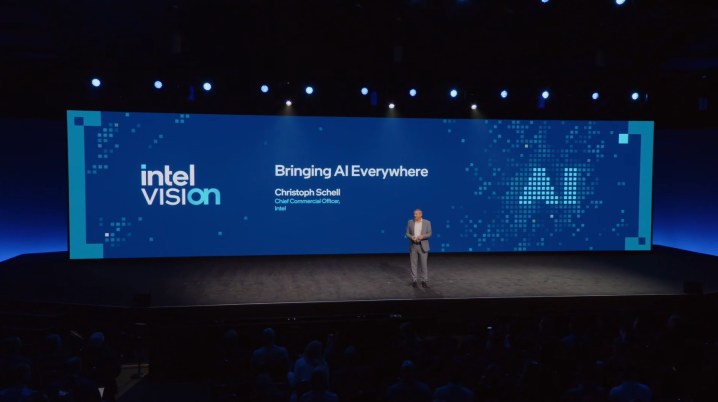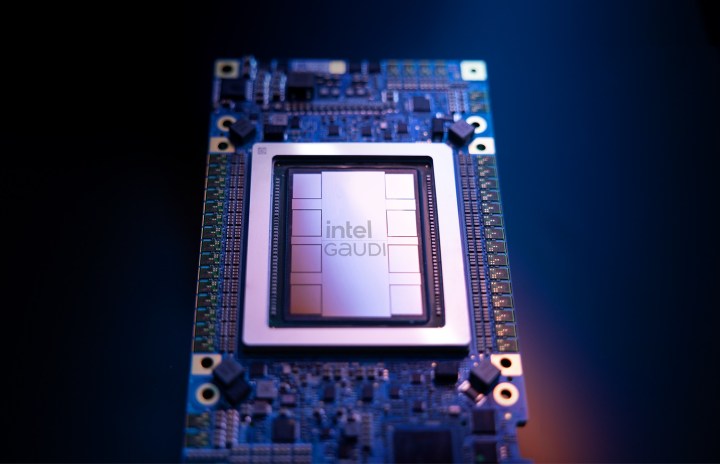
“Many people in [Silicon Valley] refer to this as, in the future, we’ll have a billion-dollar unicorn that will only have one employee,” said Sachin Katti, senior vice president and general manager of Intel’s Network and Edge Group. Katti is talking about generative AI, if the context clues weren’t strong enough, in one of the most obvious examples of saying the quiet part out loud.
In a briefing with press prior to Intel’s Vision event, which is happening right now at the time of publishing, Intel laid out its vision of the future of generative AI. And that future is filled with generative AI “agents,” as Intel calls them, replacing people’s jobs.
There are three ages, according to Intel. Right now, we’re in the age of the AI co-pilot with tools like, well, Microsoft Copilot and ChatGPT. The next is the age of AI agents. Here’s how Katti describes that: “What we mean by ‘agent’ is, instead of AI helping, it will take over entire domain-specific workloads.”
“Domain-specific workloads” is some enterprise speak that’s clear as mud, but Katti thankfully cleared up what it means specifically. “Imagine taking over the role of a checkout agent in a retail store. Imagine taking over the role of an assistant who handles many complex workflows for you.” In other words, imagine AI taking the role that people normally would.
It doesn’t stop there. Next up is the age of AI functions, where these agents will start working together to take over entire departments. Those aren’t my words. “The next era is going to be the age of AI functions, where it’s not just one agent, it’s collections of agents becoming a team and interacting with each other to take over the function of entire departments. Think your finance department, think your HR department,” Katti said.
None of this should be surprising if you’ve paid attention to the rise of generative AI, but it’s still surprising to see a company like Intel be so open about AI taking over the roles traditionally filled by people.

Time will tell if Intel’s predictions are right. Some important context here is that Intel launched its Gaudi 3 GPU at Vision, which it says is an AI accelerator capable of delivering a 50% improvement in time to train compared to Nvidia’s H100. Intel also says it predicts that the Gaudi 3 will outperform the H100 in AI inference by 50% on average.
In a future dominated by AI agents, you want to be the company selling the hardware that makes these utilities run — that is to say, maybe Intel’s predictions about AI in the future are a little rose-tinted.
Editors’ Recommendations




